Wish to be part of the oldest domestic Kali Pujo of Bengal?
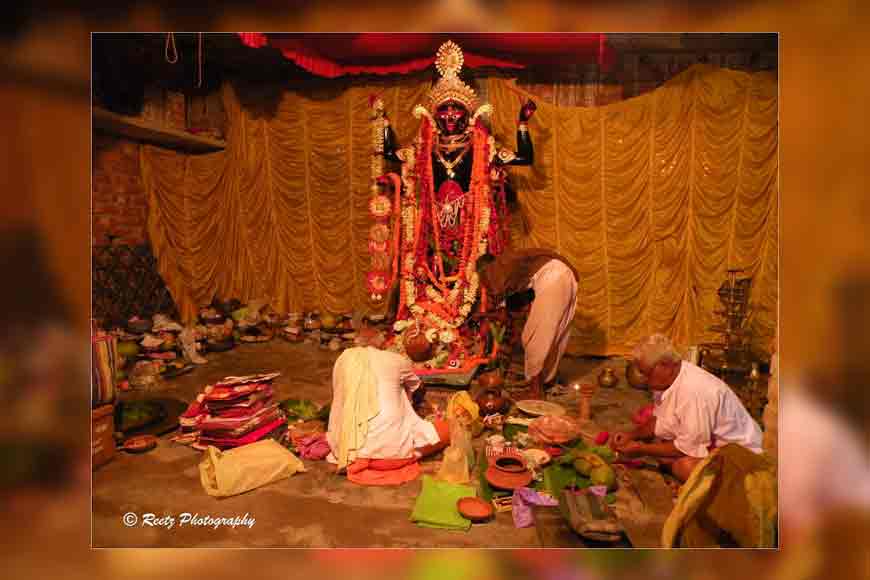
While most of the Indian states observe Diwali, West Bengal witnesses a traditional style of worshipping Goddess Kali (also known as Shyama Puja as ‘Shyama’ is the other name of the deity) at home, public pandals and cremation grounds (especially where she is believed to dwell) on the eve of Bhoot Chaturdashi. However, that of Somnagar village’s ‘Bandyopadhyay’ family is arguably the oldest domestic puja of Bengal which has been continuing with deep devotion over 600 years. The idol is created at the temple premises on the same day of the puja and is completed before the sunset, followed by overnight chanting of Sanskrit mantras, animal sacrifices at midnight and finally concludes with the holy Prasad distribution at the break of the dawn.
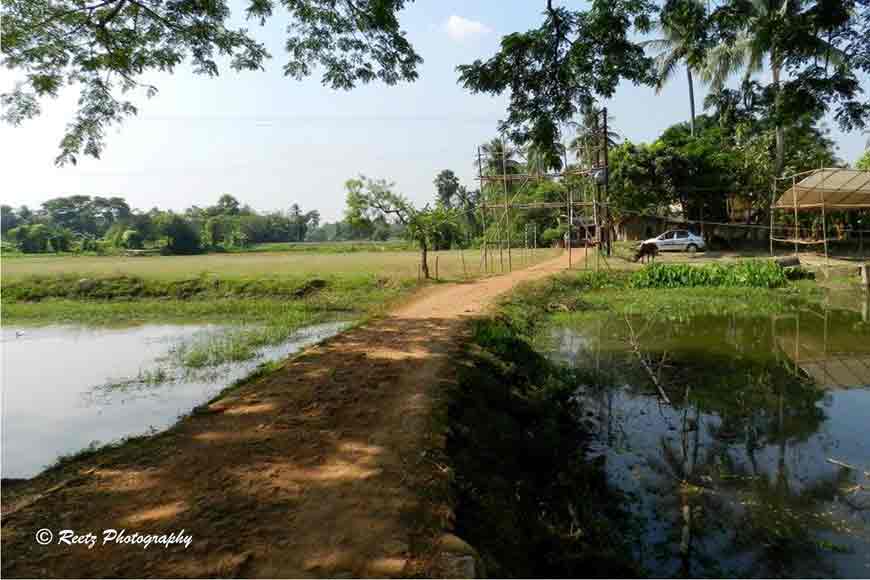
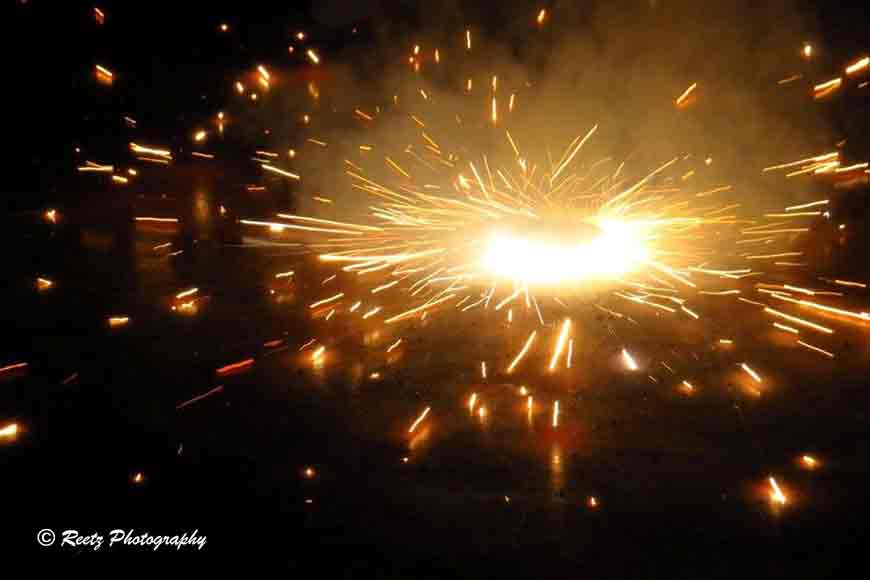
The Somnagar village offers a pristine countryside full of lush green paddies, hardly 55 kilometers from Kolkata and is well connected by both rail and road. Folklores say, centuries ago a young elite Brahmin was travelling through this village. It was a hot summer afternoon. Out of immense fatigue, he chose to take rest under an old Banyan tree just beside the ‘Samsan Ghat’ (Hindu cremation ground). He did not realize when his eyes caught a doze. It was in sleep that he met Goddess Kali who instructed the Brahmin to patron her at Somnagar and worship every year on the new moon night of ‘Kartik’ month.
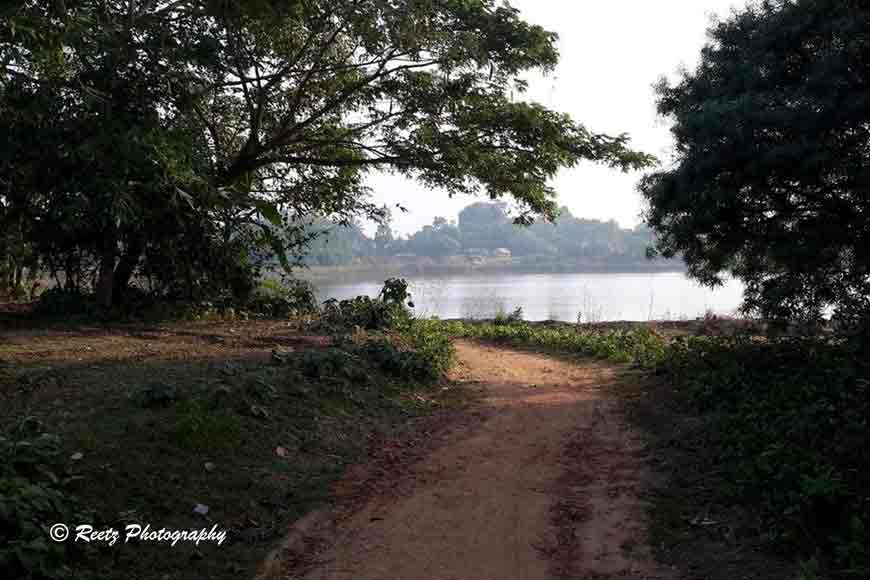
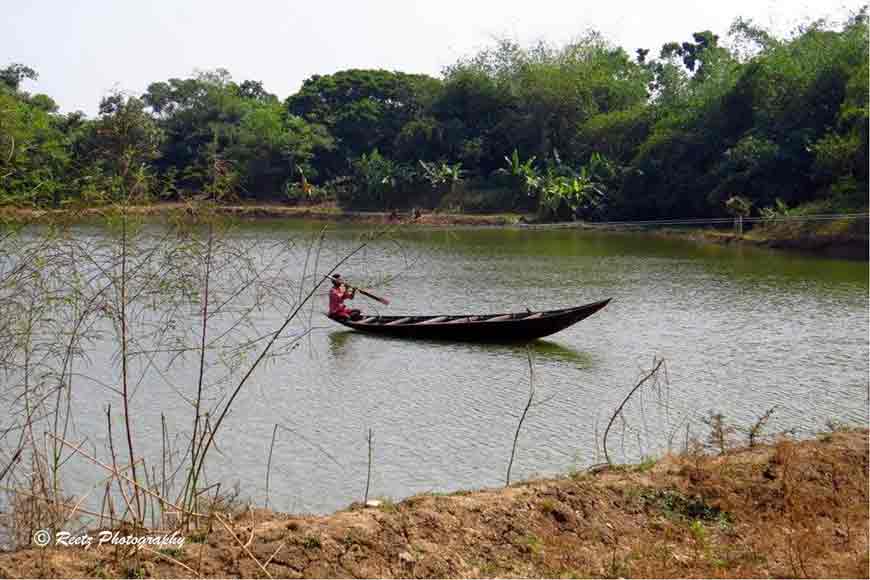
A year later, he built a house in the village and constructed a big ‘atchala’ (temple with eight pillars) inside his domestic premises to patronize Goddess Kali in the household. Since then the Bandyopadhyay family is celebrating Kali Puja with loud pomp and show at their ancestral house in Somnagar. The ‘Sankalpa’ (holy oath) of the puja is still taken in the name of the head of the Bandyopadhyay family.
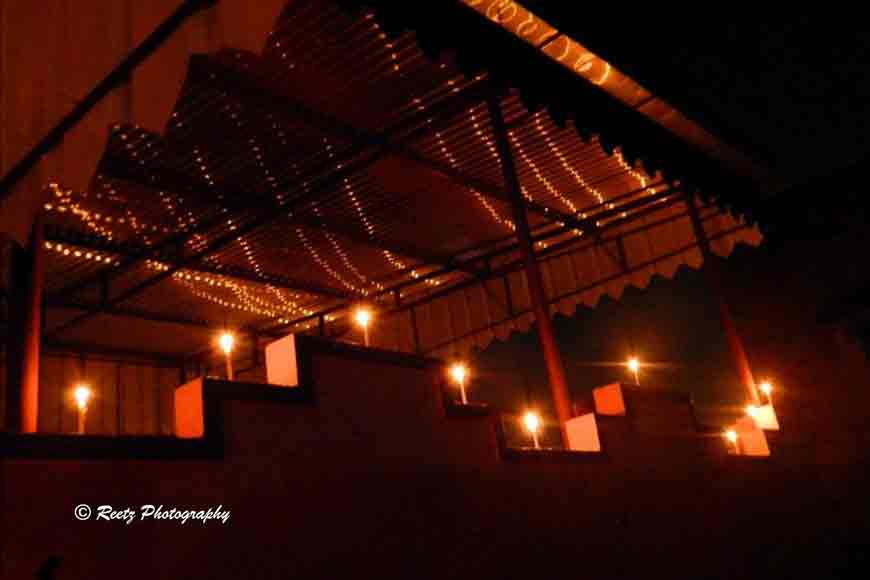
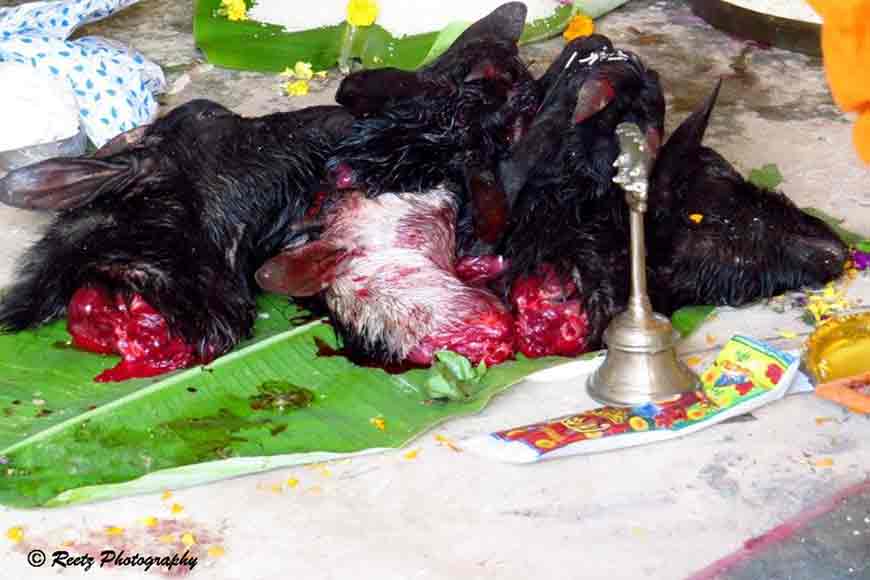
A freshly caught Catla fish at midnight serves as the main ‘Bhog’ (food offering to the deity) and the rituals are accomplished over a huge ‘Home Yajna’ (fire sacrifice) followed by an array of animal (mostly goat) slaughters. Next morning, the sacred meat is distributed in the entire village as ‘Prasad’ (holy food) of Goddess Kali. However, in support of nonviolence, of late, the youngsters of the family have started discouraging animal sacrifices under the shade of sanctity. Hopefully, in the years to come, the brutal tradition would kiss its end.
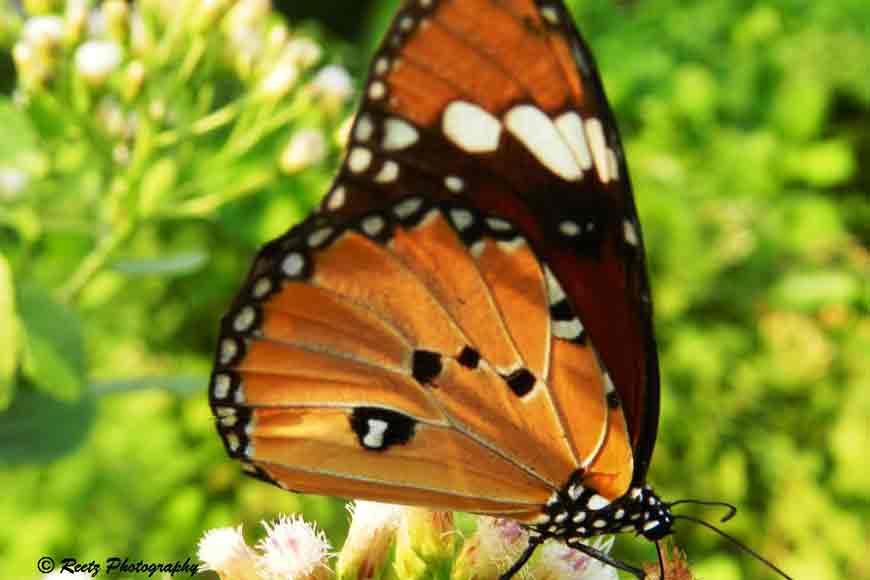
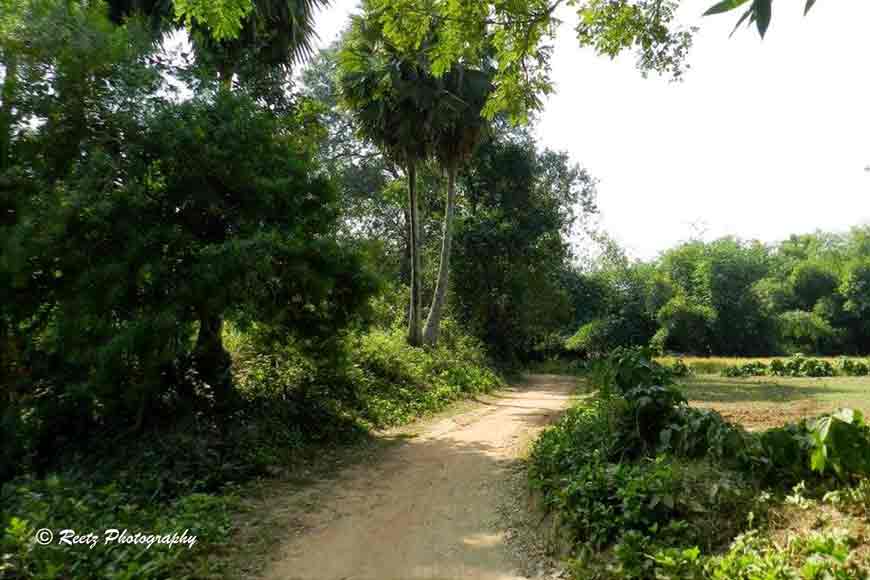
Even today, the whole Bandyopadhyay family and their distant relatives gather during the festival, keep fast till next morning, perform rigorous homages and complete three rounds of the temple by physically rolling on the ground. It is performed mostly by the married women of the family (dondi as they call in Bengali). On the night of the puja the whole house is brightly lit up with thousands of candles, young children and newly married couples burn homemade firecrackers and the entire family celebrates the festivities together. They also open doors to guests to experience their ethnic merriments on the puja day. It’s a lifetime experience indeed to witness such a vintage yet ceremonial celebration of the festival of lights around this corner of Bengal. Why don’t you plan your next Diwali holidays here?









